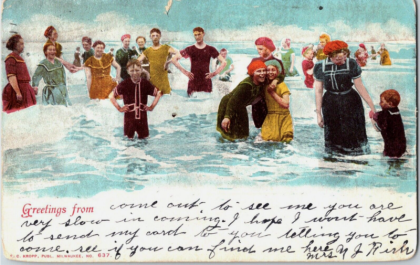Even though the concept of the “Love Languages” is known by quite a lot of people these days, it’s amazing how often this comes up between couples, friends, and family members—most people are not receiving love in the way they’d like to be receiving it.
If you’re not yet familiar with the Five Love Languages, this is an assessment that was created by Dr. Gary Chapman who also wrote a book of the same name. Pardon me, Gary, but I’m going to dumb it down a bit and say it’s a relatively simple concept stating that each of us receive love in different ways, and the way we want to receive it may not be the same as how someone else wants to give it.
Dr. Chapman’s five love languages are: words of affirmation, acts of service, quality time, physical touch, and receiving gifts. Curious what yours is—you can easily google this and take a little quiz and find out. It’s a good thing to know about yourself and your loved ones, and will likely make your relationships happier.
What I want to focus on today is the receiver and giver of this love. Let’s focus on the receiver first. For example, if my love language is quality time, it means that I’ll feel really loved by the people who want to spend quality time with me. The fact that they want to sit with me and talk and hang out and share time and space with me is a type of love language that I’ll readily be able to receive and feel. I will come out of that interaction feeling very cared for. However, if you keep telling me that I’m smart and pretty (words of affirmation) but don’t spend any time with me, those words will probably just roll right off and I’ll leave that interaction not feeling very met.
Now, the person giving the lovely compliments in the above example may very well feel like they are doing soooooo much to show you how much they love you, and they will likely feel frustrated or exhausted because they feel they’re doing a lot of giving and it doesn’t seem to phase you. But the truth is, they’re just not giving you something that excites you. It’s literally just not the present (like getting socks at Christmas) you really wanted.
Solutions to getting the love you want:
- Ask to be shown love in a specific way. Without belittling or making the other person wrong, you can sweetly share all the ways you enjoy receiving love and affection.
- Find out how your loved ones want to be loved! You could take the Love Languages test together and have an interesting discussion about the results. Or, just ask them how they would like to be loved. It may take them a little time to think of what they’d like and you might be surprised what their answers are.
If you truly love the person you’re spending time with, and you’d like them to really feel that from you, do your homework.
Tip:
We usually give the type of love we want to receive.
Things to look out for:
We can easily see this “unmet love feeling” play out between couples, friends, and family members. If it’s not addressed, it can even become a wound that your inner child plays out when you’re in adult relationships. As an example, if I wanted to receive quality time and hugs from my dad as a child but all I got were presents, this would eventually become a subconscious pattern that my inner child would play out in my adult relationships over and over again until (hopefully), she’d start parenting herself and give herself the love she wanted (and wants) in the way she wants it. There are some beautiful methods of re-parenting your own inner child, but we’ll chat about those another day. Additionally, if you’re in a conscious relationship and see this transpiring, a super high-vibe thing to do would be to share this with your partner so you can work together to change that old wound.












